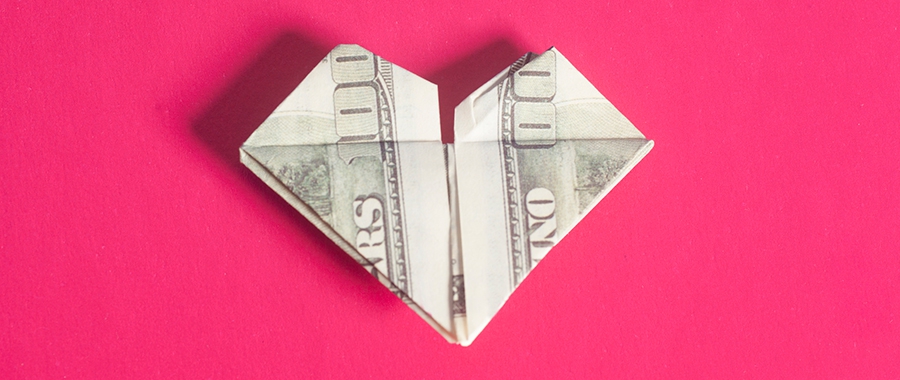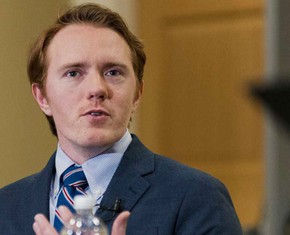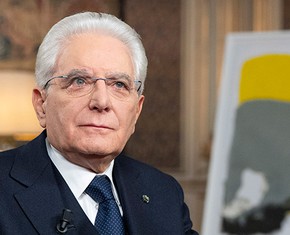The views expressed in our content reflect individual perspectives and do not represent the authoritative views of the Baha'i Faith.
“82% of the wealth generated in 2017 in the world went to the richest 1%.” That headline led the news today, and it made me feel horrible.
The article went on to say: “The economic lives of 3.7 billion poor did not improve from last year.”
The news report, seen on TV, in newspapers and all across social media, said: “A CEO from one of the world’s top five global fashion brands has to work for just four days to earn what a garment worker in Bangladesh will earn in an entire lifetime.”
This is not the first time we’ve seen such numbers highlighting the sad economic situation of the world. As I stared at these statistics, my mind tried to imagine the plight of the poor, and I couldn’t help but wonder how even a small fraction of that 82% would change the lives of billions of poor people.
To me, it was the only way I could interpret these tragic statistics, and that made me extremely sad. Then the thought came to me that the hyper-rich 1% also see this news, which they have seen before, and yet it has not sufficiently changed their ways. That thought made me feel helpless. I felt hopeless, too, that this widening gap between the rich and the poor will continue growing, and that no one can stop it. I even questioned our very humanity, which allows these deep disparities to continue.
Then I decided that for my part, I will try to make this story not to go away so fast. I decided to write about it, hoping to bring it to the attention of as many people as I can reach.
When I see these kinds of grim numbers, they bring to mind the words of Baha’u’llah:
Why, then, exhibit such greed in amassing the treasures of the earth, when your days are numbered and your chance is well-nigh lost? Will ye not, then, O heedless ones, shake off your slumber? – Baha’u’llah, Gleanings from the Writings of Baha’u’llah, p. 127.
O Ye Rich Ones on Earth! The poor in your midst are My trust; guard ye My trust, and be not intent only on your own ease. – Baha’u’llah, The Hidden Words, p. 41.
One of the central principles of the Baha’i teachings—the elimination of the extremes of wealth and poverty—directly addresses this disturbing trend:
The inordinate disparity between rich and poor, a source of acute suffering, keeps the world in a state of instability, virtually on the brink of war. Few societies have dealt efficiently with this situation. The solution calls for the combined application of spiritual, moral and practical approaches. A fresh look at the problem is required, entailing consultation with experts from a wide spectrum of disciplines, devoid of economic and ideological polemics, and involving the people directly affected in the decisions that must urgently be made. It is an issue that is bound up not only with the necessity for eliminating extremes of wealth and poverty but also with those spiritual verities the understanding of which can produce a new universal attitude. Fostering such an attitude is itself a major part of the solution. – The Universal House of Justice, October 1985, The Promise of World Peace, p. 3.
There is not much that can be said about what this news and these statistics indicate. To me, they indicate a sick economic system that favours the rich and ignores the plight of the poor while humanity stands on the sidelines and watches it continue.
But the Baha’i teachings recommend a solution:
The fundamentals of the whole economic condition are divine in nature and are associated with the world of the heart and spirit. This is fully explained in the Baha’i teaching, and without knowledge of its principles no improvement in the economic state can be realised. The Baha’is will bring about this improvement and betterment but not through sedition and appeal to physical force—not through warfare, but welfare. Hearts must be so cemented together, love must become so dominant that the rich shall most willingly extend assistance to the poor and take steps to establish these economic adjustments permanently. If it is accomplished in this way, it will be most praiseworthy because then it will be for the sake of God and in the pathway of His service. For example, it will be as if the rich inhabitants of a city should say, “It is neither just nor lawful that we should possess great wealth while there is abject poverty in this community,” and then willingly give their wealth to the poor, retaining only as much as will enable them to live comfortably. – Abdu’l-Baha, The Promulgation of Universal Peace, pp. 238-239.
I hope we soon wake up to the reality that we could be the instruments of the change the Baha’i teachings call for—and begin to act to make it a reality. Even small actions can begin to instil this change, by creating empathy for the poor in our hearts and then doing what all we can to remedy this grave injustice.
So here’s a suggestion: don’t let your social or economic class limit your horizons, your thinking or your relationships. Whether you’re poor or rich, find a way to cross those economic barriers to meet and get to know people from other classes and conditions.
We all can make a difference by our actions, big or small. To stop this trend, we have to do some soul-searching and come to a course of action. We cannot close our eyes to these kinds of statistics and do nothing.
















Comments
Sign in or create an account
Continue with Googleor